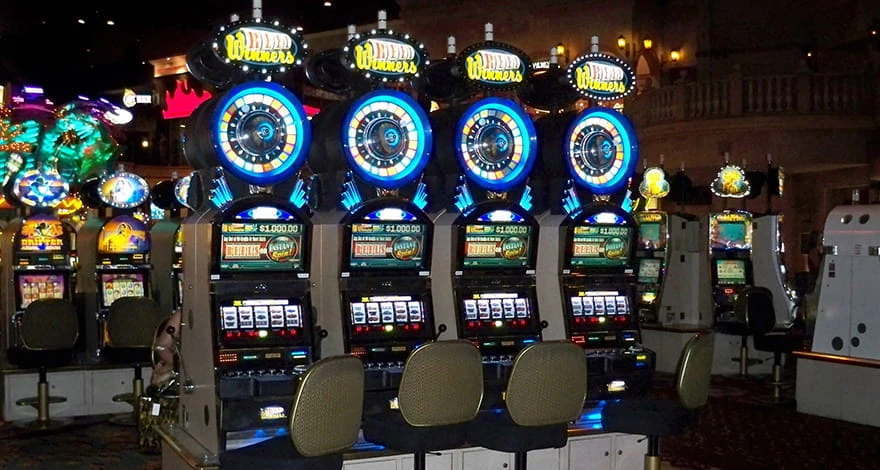The Origin of Slot Machines

The origin of slot machines can be traced back to the early nineteenth century, when Charles Fey, a German inventor, invented the first machine that could be played for real cash. Fey’s Liberty Bell machine used symbols, similar to those used in today’s machines, to create a winning combination. Fey was born in 1862, but changed his name to Charles to avoid a nickname. After working on telephones, electrical equipment, and intercoms in Great Britain, he went on to invent the slot machine.
Charles Fey invented the first slot machine, a three-disc floor machine that dispensed coins. Fey put the machine in a saloon on Powell Street in San Francisco. It quickly became a huge moneymaker. After being awarded a patent in 1893, Fey and Holtz set out to manufacture more machines, including the Liberty Bell. Fey left his co-worker’s company before the first slot machine was produced, but Fey’s name and design stuck.
After the invention of the Money Honey, the first fully electromechanical slot machine was released. Players inserted coins and then pulled a lever to set the spinning reels into motion. This lever was often present in earlier machines, which earned the nickname “One-Armed Bandit”. However, a new slot machine quickly replaced the lever with a button. Ultimately, the slot machine became the most popular casino game. There have been many different versions of the slot machine over the years.
Fruits are the most popular symbols used in slot machines, and they have appeared on machines for a long time. Some believe that playing cards were the first symbols used on slot machines. This is not entirely true, but many of them still appear on slots. You can see a number of different types of playing cards on the machines, including the Ace, King, Queen, Jack, and even the number ten. The lucky number seven, which is often associated with luck, also became a popular casino symbol. Three numbers of seven or a lucky number will bring you the largest payout.
The invention of the slot machine has been traced back to the early 19th century. While poker is generally credited as the invention of the slot machine, there are several other claims of credit. Several countries claim to have invented the game, but in reality, the American slot machine was first created in 1891 by Sittman and Pitt. The first machines used 50 playing cards and featured 5 spinning drums. The 10 of spades and jack of hearts were normally removed from the deck to reduce the odds of a royal flush.
The history of the slot machine can be traced back to its creation in 1895. Charles Fey is credited with developing the Liberty Bell slot machine, which featured five symbols, including a Liberty Bell. The Liberty Bell was initially intended to keep players from forgetting the name of the game. It is believed that horseshoes were a lucky symbol when they were first used in slots. And, while the symbol used for the game is symbolic of liberty, it’s still popular today.



